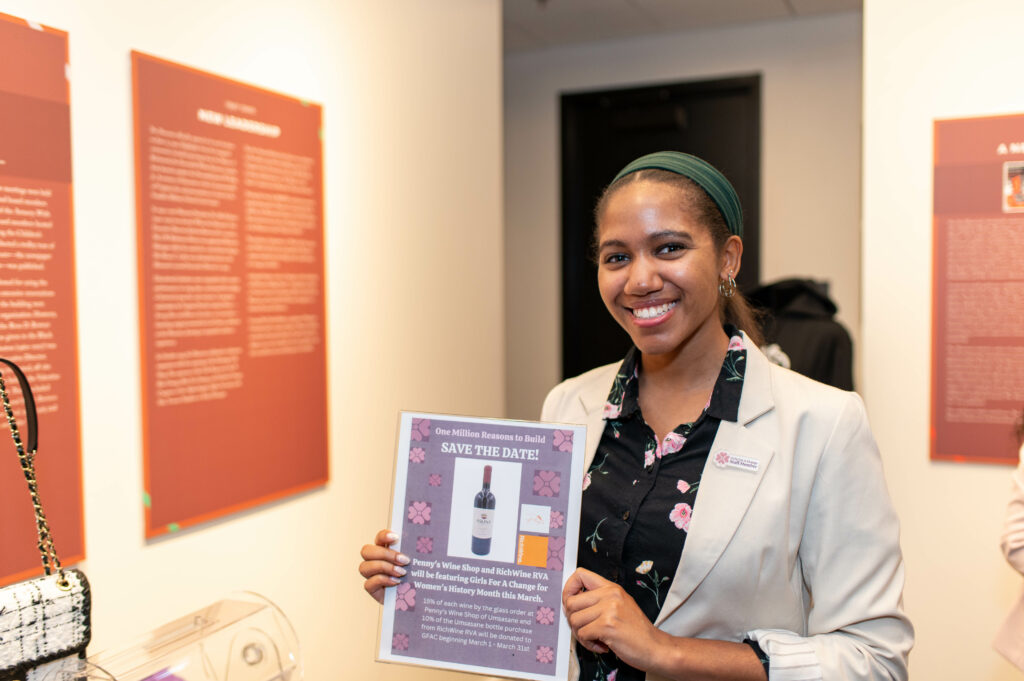
Celebrating Elevating LeadHers Development Fellow Dani Brown
When Angela Patton sees a gap in opportunities for Black girls and women, she naturally seeks to fill it. Girls For A Change was in need of a Development Director, and Angela wanted to offer an opportunity for an aspiring Black Development Director to join the team. After doing research on development programs for Black grant writers, she was discouraged to see that there were very few. So she created her own. After funding was secured, the Elevating LeadHers Fellowship was born.
It has been two years since Dani, our Elevating LeadHers Fellow, embarked on a journey with Girls For A Change. In just one year, Dani helped raise over $1,000,000 for GFAC with support from CEO Angela Patton, grant writers, and development director mentors. Her role not only encourages more Black women to become fundraisers, it also holds funders accountable for equitable and inclusive giving principles.

Here’s an interview we did with Dani to shine a light on her work at Girls For A Change.
Tell to me about your role at Girls For A Change
“I am the Elevating LeadHers Development Fellow for Girls For A Change. What that means is that I am building up GFAC’s pipeline of philanthropic support while also receiving mentorship and professional development opportunities to build up myself as a Black woman in philanthropy. The importance of that lies within Girls For A Change’s mission. Within the scope of nonprofit giving, Black women are traditionally underrepresented in the group of who is making the ask for funding, and Black-led organizations are traditionally underrepresented in the group of who is being funded.
My role serves a dual purpose of not only encouraging more Black women to become fundraisers, but to also increase our presence and hold funders, whether they are individuals, foundations, or corporations, accountable, especially in a post-BLM world, to equitable giving principles and utilize our inherent wisdom to inspire them to be the best partners in their giving journey as possible.”
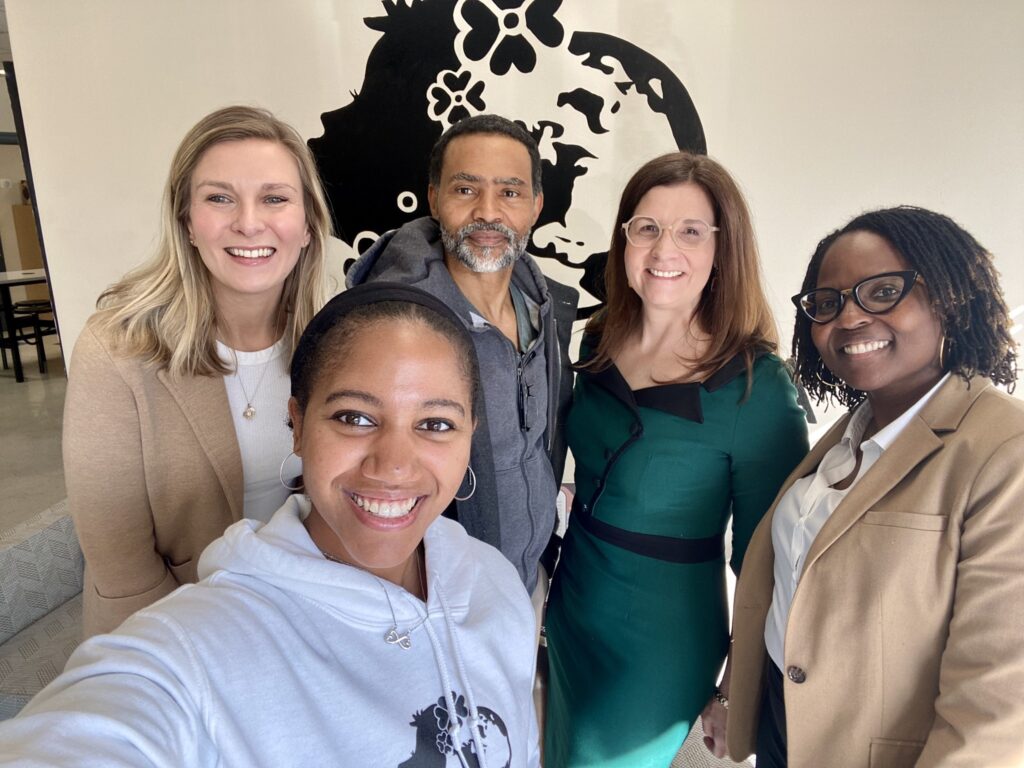
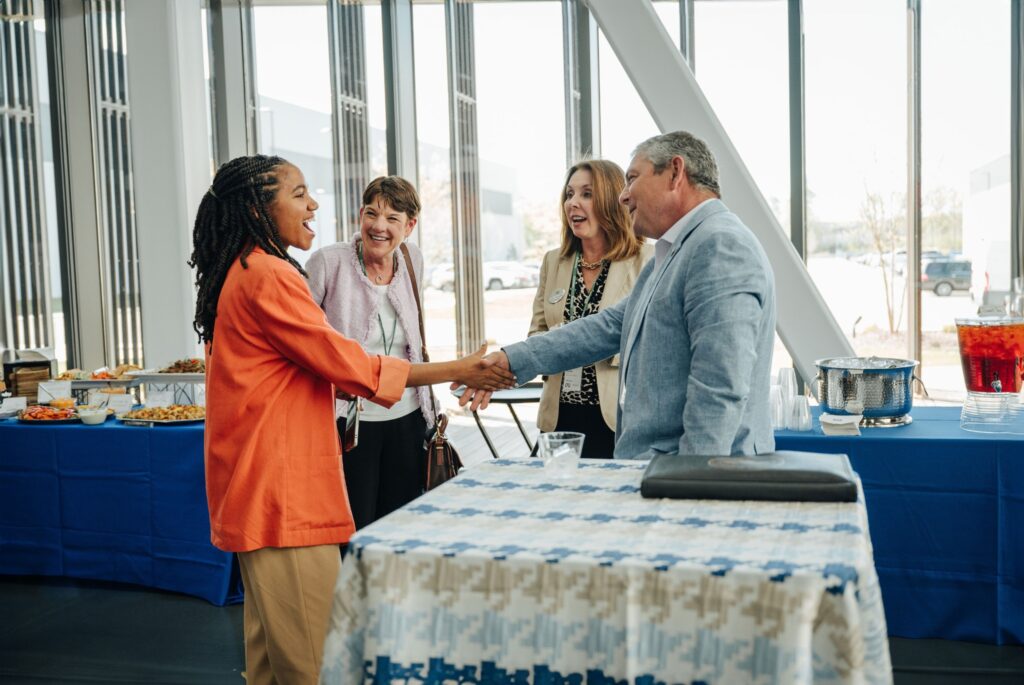
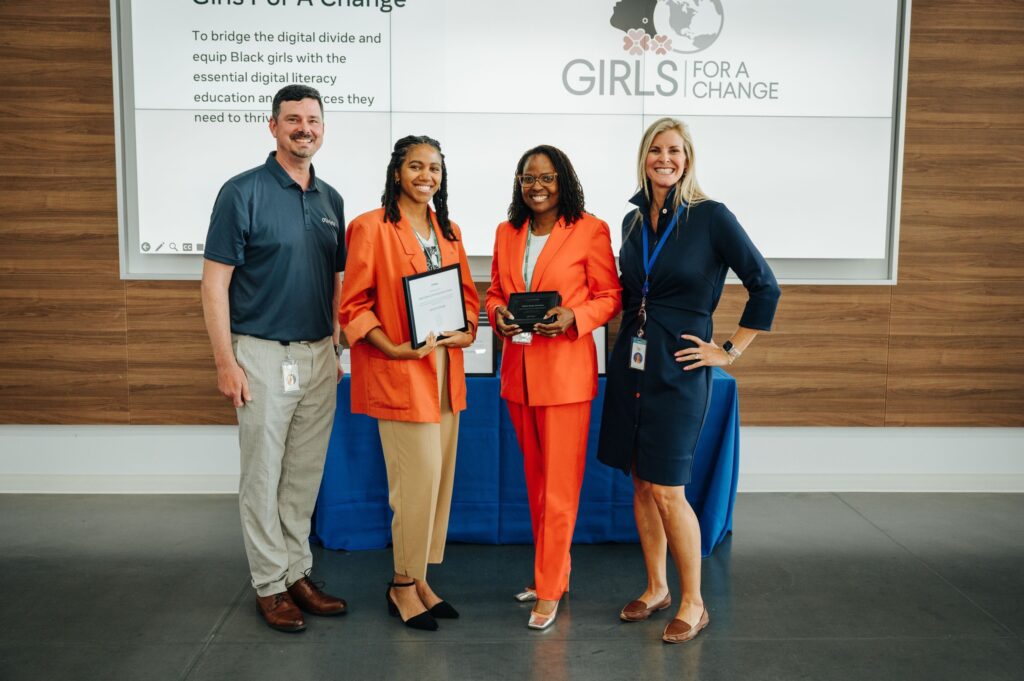
What are you most proud of when you look back at your time with GFAC and all the work you’ve done?
“I have so much to celebrate and be proud of. Other than a fundraiser’s usual peak achievement of meeting the fundraising goal, which we did, I am most proud of the relationships I have built with the various community members that interact with GFAC. The girls, coaches, donors, volunteers, staff, contractors, community partners, prospective supporters, friends, and the list goes on. GFAC has built an amazing community, and I am just honored to be a part of our continued growth.”
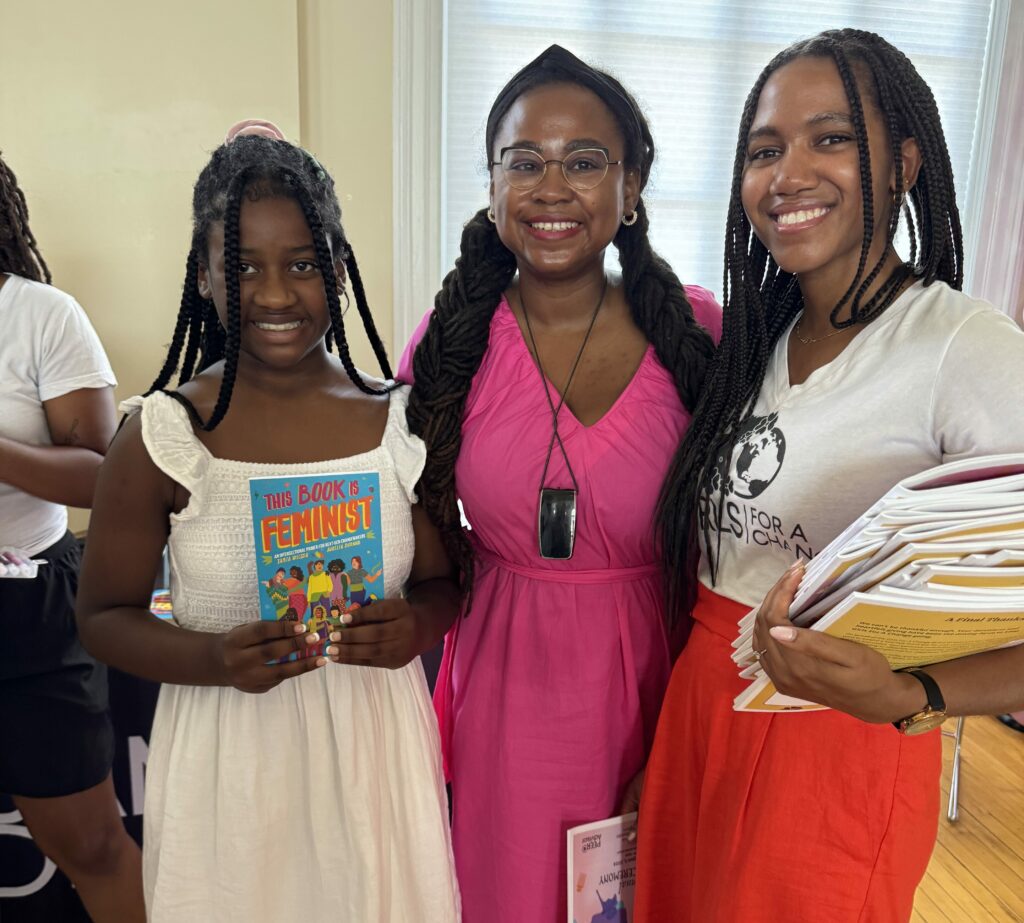
What are your goals for the upcoming years?
In terms of funding, I hope to continue increasing our annual giving, especially among our individual supporters, and help to close out the One Million Reasons to Build Capital Campaign.
Personally, I hope to establish a desired trajectory in my career field. There are many sub-categories for development: major giving, planned giving, annual giving, individual giving, institutional giving, database management, capital campaigns, grant writing, stewardship, once again the list goes on. Some fundraisers’ goal is to be a Director of Development or a Chief Philanthropy Officer, who basically oversees the whole operation of a nonprofit’s fundraising efforts. Others prefer to specialize in a sub-category. I have quite a few interests, and I am still not quite sure which direction I want to take.
In the meantime, acquiring the guidance I have received from my mentors, gaining more skills in nontraditional settings, and becoming more clear in my values as a fundraiser and nonprofit professional while at GFAC has reassured me that no matter the path I choose to take, I will be equipped.”
How has the fundraising and outreach strategy changed since you’ve come onboard?
“GFAC’s overall strategies always center around honoring and uplifting Black girls, no matter the department. I wouldn’t ever want to disrupt that. Since coming on board, I have focused more so on seeking ways to take what is already working, organizing it for a formal development department, and thereby building up a department that has both a stable and still flexible framework that can be as responsive as our community calls GFAC to be.”
Tell us a little more about your own development.
“My opportunities for development while at GFAC have been vast. My favorite opportunity so far has definitely been the HIGHER Ground Women’s Leadership Development Program through the Grace E. Harris Leadership Institute at Virginia Commonwealth University. I spent six months among amazing women from various backgrounds and career fields. We spoke about our professional development, but also spent a better majority of our time reflecting on ourselves and what we want out of life. The lessons I learned and the connections I made were incredible.
I have also developed my grant writing and strategy skills under Danielle Taylor, Strategic Disruption Consulting. She has been a wonderful wealth of knowledge and wisdom for me. Also, through my mentorship with women from the ACLU, including Chief Development Officer Julie Weinstein and Philanthropy Program Manager Marilyn Perez-Mendoza, I have received a multitude of professional guidance on database management, donor and prospect relations, and even inter-departmental communications when working on multi-layered projects.
Lastly, the conversations I have had with my mentor, Betsy Scolnik, have been wonderful in sparking ideas and brainstorming for our capital campaign.”
What did you do before you came to GFAC and what are your career goals?
“Before GFAC, I was the Development Coordinator for Cristo Rey Richmond High School. I spent three wonderful years developing my skills in database management, annual giving, stewardship, and even got to work on their capital campaign. As well, I found a wonderful spark in working with young people and seeing how they could take an opportunity and use it to find their own way. Overall, I came in with about five years of nonprofit development experience, and an overall eight years of nonprofit communications experience.
My ultimate career goal is to always work with organizations that lead with love and a true sense of community.”
